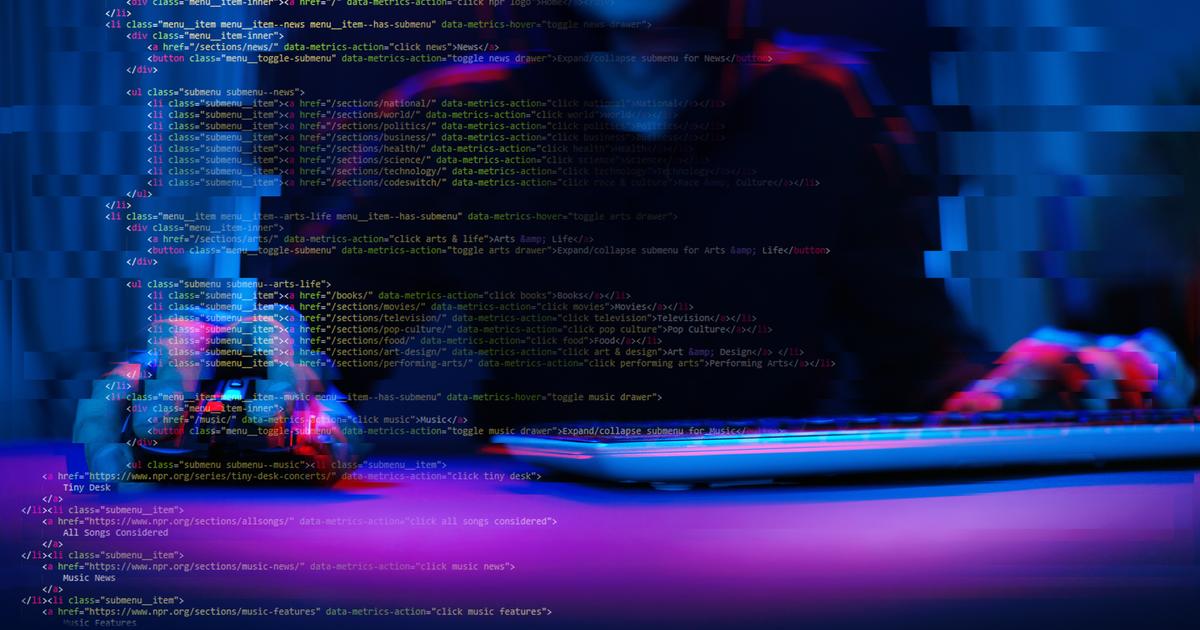Tarik Yildiz is a sociologist and author. He has notably published
From fatigue of being oneself to ready-to-believe.
Fight against delinquency to combat Islamist radicalism
(Éditions du Puits de Roulle).
FIGAROVOX.-The 2015 attacks highlighted a phenomenon of Islamist radicalization that seemed to exist for many years.
How did this phenomenon appear in France?
Tarik YILDIZ.-
In fact, this phenomenon of radicalization, which has grown in particular due to the international context (conflicts in Syria and Iraq) has been at work since well before 2015. This process has various sources.
In addition to the classic and frequently advanced factors (socio-economic conditions) there are dimensions over which the State has little control, such as cultural and religious background, or family breakdown.
On the other hand, other elements that the public authorities have the better means to control are at work: the ideological vacuum, the lack of authority and the lack of education.
By analyzing the paths of radicalized individuals, we can realize that a latent hatred of what represents France, the State preexisted the passage to the act.
They are often young French people born in France who despise a State considered weak, which does not know how to be respected.
The radicalization process generally evolves in a complex identity context among individuals who test the limits of society: the paths are very often punctuated by acts of delinquency, not always condemned.
When they are, the "
punishment
" is not crippling and they continue on this slippery slope until filling the ideological and authority void by espousing a form of religion to the end.
These young people who were not, contrary to popular belief, "
between two cultures
", enter a form of religion which allows them a rehabilitation: it represents a force which knows how to answer all their questions in a world where individual freedom. makes it so "
tiring to be yourself
".
She clearly distinguishes the lawful from the illegal, going down to the smallest detail of everyday life (as I mentioned in my last essay, until knowing whether they have the right to consume "
caprice des Dieux
" cheese.
").
They learn a new language, get acquainted with a form of discipline by praying regularly, by getting up early, by learning texts by heart… They then enjoy prestige with those around them.
They despise the weakness of the state and only religion appears worthy of interest to them, as a means of redeeming themselves first of all from themselves.
They find there the framework that society has not been able to give them for lack of authority, discipline, limits set after criminal acts.
They despise the weakness of the state and only religion appears worthy of interest to them, as a means of redeeming themselves first of all from themselves.
Not all of them go as far as jihadism, but they want to develop a form of counter-society, purer, far from "
disbelieving deviances
" and the translation is sometimes violent.
Is there a “
French specificity
” in the radicalization process?
Radicalism is a worldwide phenomenon linked to the aforementioned factors, in particular the cultural and religious context.
Beyond the dimension endogenous to a certain form of religious, there is an exogenous dimension.
However, there is indeed a French specificity when we analyze the available statistics: France is, for example, one of the non-Muslim majority countries that has fueled jihadism the most on the Syrian and Iraqi fronts.
Several factors can be put forward to explain this specificity but for me, the most important residents in the decline of the role of the school which does not manage to free the students from their condition and the very difficult management of delinquency in France.
To read also:
"Charter of principles" of Islam: real progress or a simple declaration of no effect?
For illustration Mohammed Merah, author of the killings in Toulouse and Montauban in March 2012, committed many crimes before his radicalization process.
From the age of 14, he assaults a social worker.
In the following years, he assaulted members of his family including his mother, he was arrested for throwing stones at a bus, hitting educators, stealing cell phones and a motorbike… He was convicted a total of fourteen times for acts similar.
Another example: Ismaël Omar Mostefaï, terrorist who participated in the killing of Bataclan in November 2015. He too knows petty crime in his career: he was sentenced eight times between 2004 and 2010, without ever being imprisoned.
Willful violence with the use or threat of weapons, theft and violence in meetings, break-in, purchase of narcotics, counterfeit checks: his convictions only illustrate part of his deviant activities.
Chérif Chekatt, who carried out the attack on the Strasbourg Christmas market in December 2018, also presents a biography punctuated by delinquency.
From adolescence appear the first thefts (bikes, keys).
In total, he has been convicted 27 times for common law offenses, switching from petty crime to more serious acts over the years.
These are only examples of cases in the media, but this link with delinquency is almost systematic in the pathways of radicalized people even if the latter are not always condemned, which explains why the statistics hardly point to the links between delinquency. and radicalism, yet very real.
The public authorities should allow the systematic application of sentences, build prisons and diversify the recruitment of magistrates.
The care of these delinquents is never satisfactory: the acts are without real consequences, the limits are not set, and when the imprisonment is decided it does not allow rehabilitation (deplorable conditions, automatic surrenders, no discipline imposed…).
If from the first act of delinquency, these individuals had been firmly taken care of, would they have committed these acts?
Difficult to say with certainty, but for me, there is an opportunity to reverse this cycle.
Many of these individuals have been sentenced several times with little or no time in prison.
How to explain this penal response?
This is a broader problem of the treatment of delinquency in France.
When delinquents are arrested, which is far from being systematic, some magistrates avoid sentencing them to prison for various reasons.
There are first of all ideological reasons: multiple extenuating circumstances soften the judgment.
Some populations are seen as eternal victims, less responsible than others because of their journey.
Some judges therefore think they are doing good by being particularly understanding, which only pushes these young people in need of benchmarks.
To read also:
"We must fight against radicalization in the world of sport"
Other, more legitimate reasons are linked to the disastrous state of prisons in France.
Some judges rightly consider that a stay in prison would only worsen the situation (real school of crime effect).
However, instead of settling into this circumvention, the public authorities should allow the systematic application of sentences (by conditioning the remissions on good behavior, on training followed, etc.), build prison places and diversify the recruitment of magistrates.
The assassination of Samuel Paty and the threats against Didier Lemaire, the philosophy professor at Trappes, show that the school is also affected by this violence.
Is it still possible in certain sensitive areas to teach the values of the Republic?
Can the school still be a rampart?
The school can only be a bulwark if it assumes its vocation: to allow each individual to free himself from his condition through knowledge.
I am convinced that the values of the Republic are taught more by having our classic authors read assiduously than by imposing hours of civic instruction.
The school must allow, in particular for the most modest pupils who are the most affected, an access to the traditional culture, demanding.
The school is still (sometimes) a bulwark, but it should be everywhere by never procrastinating on its desire to pull students upwards, by not agreeing to lower the level of requirement by replacing Rousseau by mediocre lyrics by some rappers.
The solution will only go through the school.
The recent controversy over Frédérique Vidal, the minister of higher education, seems to indicate that the university is not spared by ideologies at odds with the values of the republic.
As an academic have you observed or been confronted with a form of radicalism?
I am very attached to the freedom of the research world.
For me, the important thing is to ensure the diversity of research, to avoid the inter-self which radicalizes and can quickly exclude all those who are not on the same “
line
”.
The university world is ultimately not impervious to the currents that run through society.
Allowing the state to enter the theological debate is neither desirable nor useful, on the contrary: radicalization thrives outside the institutional framework.
Do you think the separatism bill is going in the right direction?
In your opinion, have politicians taken the measure of the threat?
Some provisions go in the right direction.
Nevertheless, as mentioned above, the basic problems will not be dealt with without tackling the treatment of delinquency (firm response to each criminal act) and the level of requirement at school.
Politicians too often get the wrong targets by thinking that it is a simple matter of cult organization or foreign influences.
In fact, there are root causes that require extensive management.
Social networks are also a vector of violence.
How to fight against radicalization on the internet?
By applying the law!
Whether on the internet or elsewhere, the law must apply forcefully.
Our French disease is to generate new standards and laws when the tools exist.
Solutions have often been mentioned to fight radicalization for years, you suggest.
Why are they so complicated to set up?
Can the republic recover from these tears?
Unfortunately, we often get the wrong target or we tackle lost battles.
For example, we have long fantasized about a Gallican Islam on the Napoleonic model.
Until now, the ideas of labeling imams, of having the representatives of the cults sign a charter proceed from this logic.
However, letting the state enter the theological debate is neither desirable nor useful, quite the contrary: the process of radicalization thrives outside the institutional framework, a labeled imam will be immediately disowned.
Things are complicated to set up because we are only interested in the tip of the iceberg.
In reality, it is essential to break the underlying logic: to ensure that some young people are no longer sensitive to this form of pretense and hate speech by ensuring better respect for the State (firm response to each act delinquency, compulsory training in prison, end of automatic remittances, fluidification of the judicial system by recruiting new profiles of judges, etc.) and by strengthening the educational requirement (imposing greater discipline by punishing and isolating disruptive students, favor classical culture in the classroom, impose the reading of great French authors more forcefully to give everyone the same opportunities).
This is a major challenge, a condition for preserving national cohesion.
From the fatigue of being oneself to ready-to-believe: Fight against delinquency to fight Islamist radicalism, Tarik Yildiz, Éditions du Puits de Roulle, 110 pages, 12 euros.
Roulle well editions








